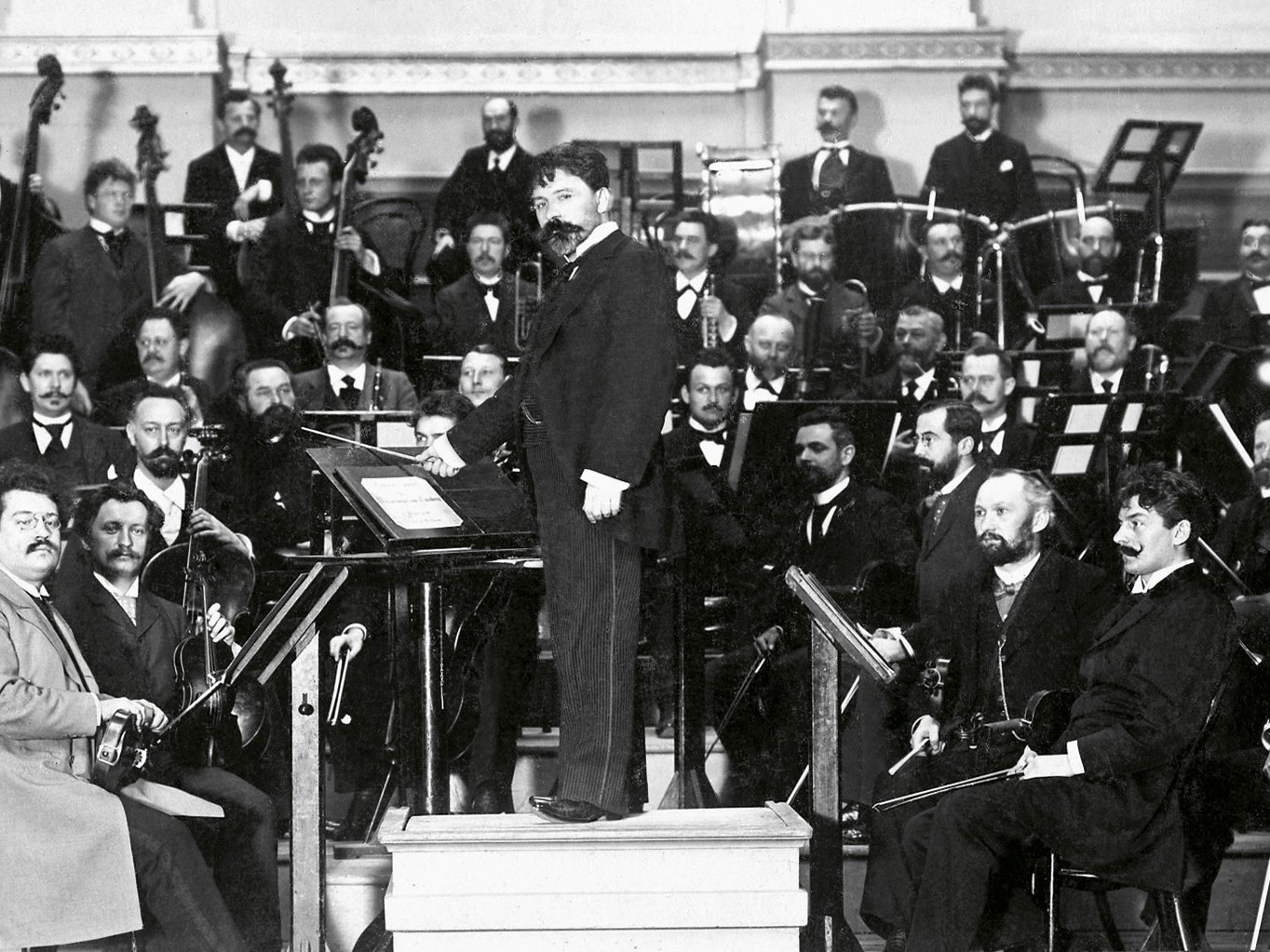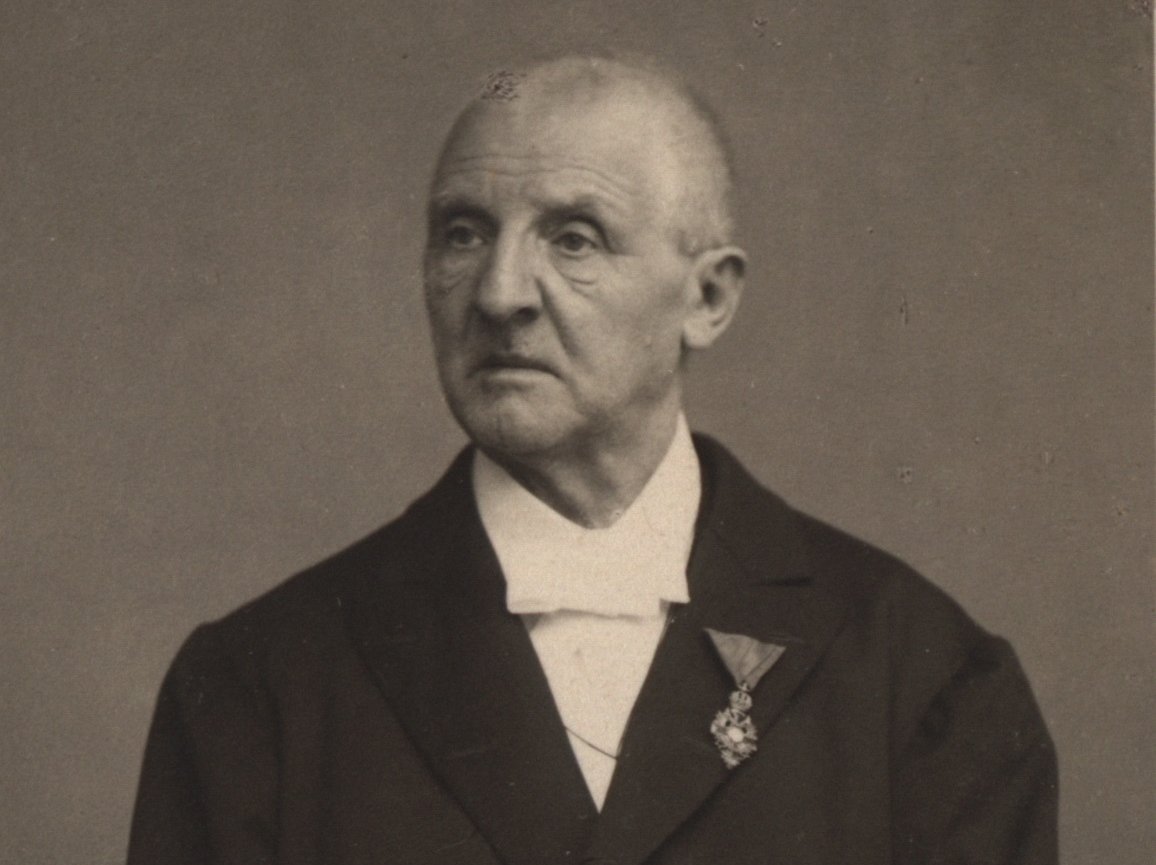
Arthur Nikisch was an impassioned admirer of Anton Bruckner at a time when the composer was still struggling to find recognition. The conductor championed the composer’s music, his advocacy proving as successful as it was enthusiastic. By conducting the world premiere of Bruckner’s Seventh Symphony, Nikisch helped the composer to achieve his breakthrough.
In 1873, in the face of considerable opposition, Bruckner conducted the first performance of his own Second Symphony with the Vienna Philharmonic. Although the concert was a success, Bruckner’s pleasure was soon dampened by a review that appeared in the Abendpost in which the reviewer made fun of the strikingly large number of whole-bar rests in the orchestra, calling it “a device that the great composers rightly use only rarely”. For a long time this barbed remark meant that the Second Symphony was known – by no means to its advantage – as the “Symphony of Pauses”. An eighteen-year-old musician who had the privilege of playing with the second violins at this concert had been sufficiently puzzled by these pauses to ask the composer what they meant. Bruckner replied that he needed to take a deep breath before saying anything significant.
This inquisitive young violinist was Arthur Nikisch, a Hungarian musician who had studied at the Vienna Conservatory. Bruckner could not have suspected that within a matter of only a few years this young and enthusiastic student would become his most important interpreter and advocate. Bruckner, who had to beg anxiously for his symphonies to be performed at all in Vienna, later said that Nikisch had “saved his life”.
A fan and a supporter
By then Nikisch had turned to conducting and was chorus master at the Leipzig Stadttheater, before rising overnight to the post of the company’s principal conductor. In the spring of 1884 he got to know Bruckner’s Seventh Symphony, which the composer had only just completed. It left him completely stunned: not since Beethoven had a composer written anything like it! Nikisch gave his “sacred word of honour” that he would rehearse the work in Leipzig: “I now regard it as my duty to stand up and be counted in support of Bruckner.”
Bruckner, who felt persecuted in Vienna, could scarcely believe his own luck and wrote to thank Nikisch in a letter couched in terms both fulsome and obsequious: “You are now the only person who can save me and who, thank God, actually wants to save me,” Bruckner admitted. “For the rest of my life, Your Honour will find in me the most grateful person in the world, just as I have always admired your art and your generous actions. Three cheers to you, O true and noble artist!”
But Bruckner still had a long wait. The concert was repeatedly postponed, and the delay proved agonising. “What does the work sound like when it’s played by an orchestra?” he kept asking, striking a note of disquiet. And only a few weeks later he wrote again: “Have there been any rehearsals yet? What does the symphony sound like?” Nikisch replied by return of post: “The work is a very difficult one, so it needs to be carefully rehearsed. In all we’ll have five rehearsals for the symphony; I think that this will be enough. There are a few passages where you’ll have to change the instrumentation, as they aren’t practicable and they don’t sound at all attractive.”
Shaping the score
It was Nikisch, too, who persuaded the composer to rescore the dramaturgical “breakthrough” in the Adagio, that is, the climax of the slow movement, and introduce a cymbal crash, a tremolando on the triangle and a drumroll, all with the aim of increasing the passage’s effectiveness. Nikisch in any case saw himself not as the steward of the score but as someone who gave it its shape and form: “The modern conductor recreates the work. Herein lies his autonomy and the productive character of his art, which is why the individuality of the orchestral conductor plays such a preeminent role today.”
Nikisch finally conducted the much-awaited premiere of the Seventh Symphony on 30 December 1884 – not, however, in the relatively conservative Gewandhaus, but instead at the Stadttheater, as part of a programme for opera-house subscribers. The orchestra was still the Gewandhaus Orchestra, which did double duty in the concert hall and the opera house. “If one is briefly to describe the impression produced by the work,” wrote a correspondent in Leipzig, “one would have to say that the initial reaction was one of bewilderment, then fascination, then wonderment and finally enthusiasm: these were the stages through which the listeners passed.”
A success that was a long time coming
For Bruckner, Vienna was a hostile environment, where he and his music were routinely mocked, so his success in Leipzig proved all the sweeter for having been so long-delayed. The fact that it came in a foreign country was all the more remarkable. “He stood there in his modest garb in front of the excited crowd, bowing helplessly and awkwardly,” another critic reported. “At one moment the old man’s lips twitched sadly with an emotion that was effortfully suppressed and at the next moment his eyes lit up and shone in the most wondrous way.”
Arthur Nikisch remained true to his solemn promise and continued to champion Bruckner. In 1895, after appointments in Boston and Budapest, he took over as principal conductor of both the Leipzig Gewandhaus Orchestra and the Berliner Philharmoniker. In Leipzig his return amounted to a homecoming, bringing him back to an orchestra in which he had once served as a rank-and-file violinist. But he had never previously conducted the Berliners, with whom he now made his debut as the orchestra’s chief conductor.
When Bruckner died on 11 October 1896, Nikisch programmed the Adagio – the “Funeral Music” – from the Seventh Symphony at his concerts in both Leipzig and Berlin. “Another musician who first had to die before the mean-spirited music industry took a serious interest in his works,” complained a contributor to the Neue Berliner Musikzeitung. In the years leading up to Bruckner’s death, the Berliner Philharmoniker had performed a mere handful of his works at their concerts. But these renditions had been met with a cool response or even outright rejection, notably with the Seventh and, even more egregiously, the Third, when listeners left the hall in droves in the middle of the concert.
The first cycle of Bruckner symphonies in the history of the concert hall
To make matters even worse, Nikisch’s predecessor in Berlin, Hans von Bülow, had described Bruckner as “half genius, half simpleton”, a memorably malicious put-down that seemed to be indelibly ingrained in people’s minds. But Nikisch refused to be discouraged. Together with the Berliners, he gave the local premieres of the Fifth, Second, Ninth and Eighth Symphonies; meanwhile in Leipzig, during the 1919/20 season, he organized the very first Bruckner cycle in the entirety of concert-going history.
After conducting the Seventh he addressed the audience: “The poor master! If only he could have lived to witness this! He wrote one monumental work after another. No one paid the least heed to them. If anyone had gone to him and said ‘Hey there, don’t get despondent. There’s a city in Germany where, in the not too distant future, all of your symphonies will be performed within a single winter season’, he would have declared that person insane – or else he would have been so happy that he would not have known what to say.”
Unlike all his famous successors, from Furtwängler to Petrenko and Nelsons, Nikisch left very few recordings, and none at all of his legendary Bruckner interpretations. In his obituary of the conductor in 1922, the playwright Gerhart Hauptmann made a pessimistic observation: “For all who come after us, the magnificent phenomenon that is Nikisch will longer be a presence," he predicted. "Nor will he ever have been a presence. This thought is both strange and painful!”

Fanning the flames
Today, concerts featuring Bruckner’s symphonies are among the Berliner Philharmoniker’s seasonal highlights, but this was not always the case. On the Bruckner tradition of the Berliner Philharmoniker.

Arthur Nikisch: the soulful one
Arthur Nikisch, principal conductor 1895–1922, was possessed of a great sensitivity and intuition, and he captured the musicians’ hearts.

The Misfit
Anton Bruckner was always an outsider in Vienna’s polite society. Who was this “mifit” and what motivated him? In search of the evidence.